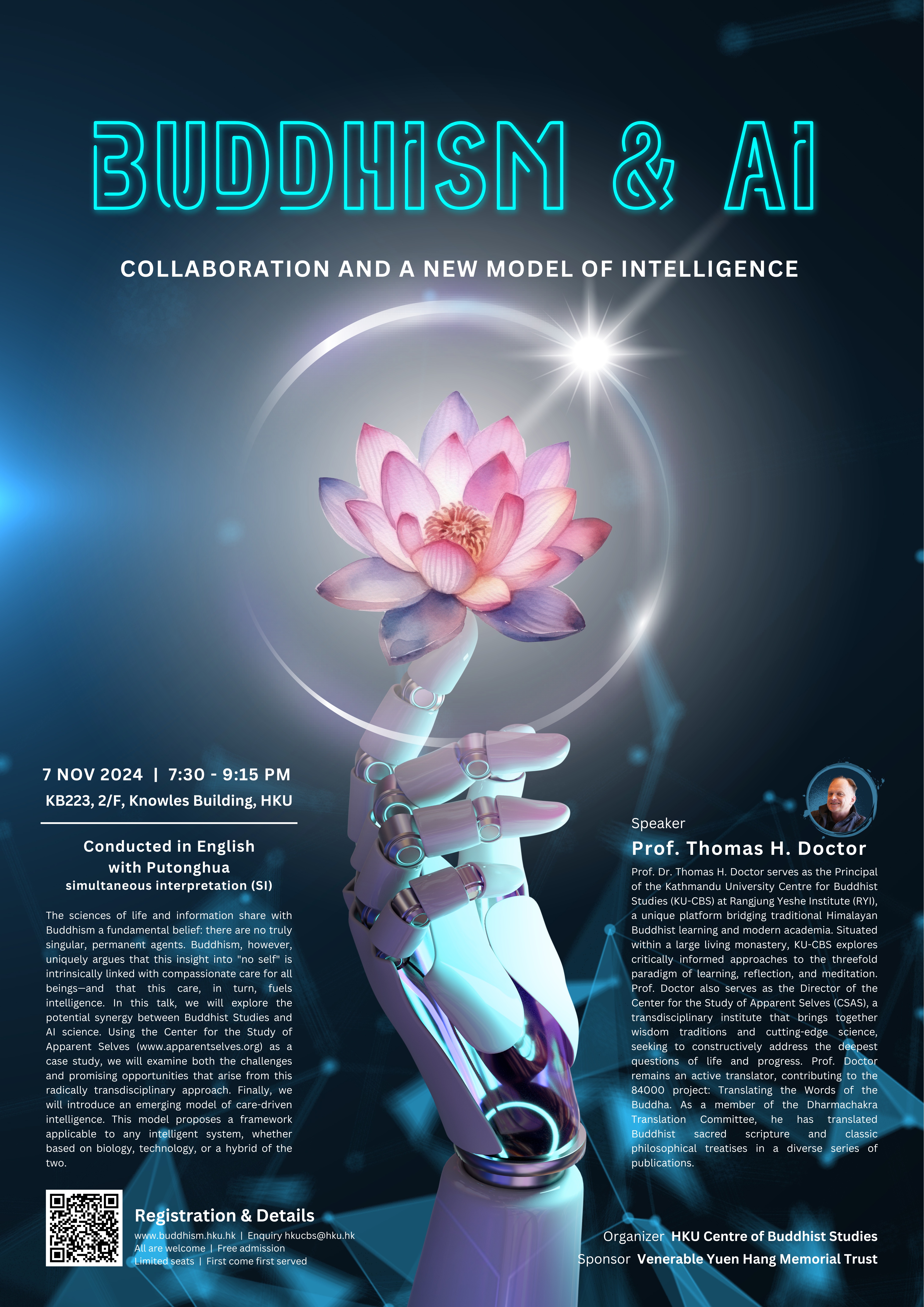Conducted in English, with Putonghua simultaneous interpretation (SI)
Buddhism and AI: Collaboration and a New Model of Intelligence
佛教與人工智能 – 合作與智能新模式
Speaker: Prof. Dr. Thomas H. Doctor
Date 日期: 7 Nov 2024 (Thu) | 2024年11月7日(星期四)
Time 時間:7:30-9:15 pm | 下午7:30-9:15
Venue 地點:KB223, 2/F, Knowles Building, HKU | 香港大學鈕魯詩樓2/F講堂KB223
All are welcome | Free admission | Limited seats | First come first served
歡迎各界人士參加 | 免費入場 | 座位有限 先到先得 額滿即止
About the speaker
Prof. Dr. Thomas H. Doctor serves as the Principal of the Kathmandu University Centre for Buddhist Studies (KU-CBS) at Rangjung Yeshe Institute (RYI), a unique platform bridging traditional Himalayan Buddhist learning and modern academia. Situated within a large living monastery, KU-CBS explores critically informed approaches to the threefold paradigm of learning, reflection, and meditation. Thomas also serves as the Director of the Center for the Study of Apparent Selves (CSAS), a transdisciplinary institute that brings together wisdom traditions and cutting-edge science, seeking to constructively address the deepest questions of life and progress. Dr. Doctor remains an active translator, contributing to the 84000 project: Translating the Words of the Buddha. As a member of the Dharmachakra Translation Committee, he has translated Buddhist sacred scripture and classic philosophical treatises in a diverse series of publications.
講者簡介
Lecture Abstract
The sciences of life and information share with Buddhism a fundamental belief: there are no truly singular, permanent agents. Buddhism, however, uniquely argues that this insight into “no self” is intrinsically linked with compassionate care for all beings—and that this care, in turn, fuels intelligence. In this talk, we will explore the potential synergy between Buddhist Studies and AI science. Using the Center for the Study of Apparent Selves (www.apparentselves.org) as a case study, we will examine both the challenges and promising opportunities that arise from this radically transdisciplinary approach. Finally, we will introduce an emerging model of care-driven intelligence. This model proposes a framework applicable to any intelligent system, whether based on biology, technology, or a hybrid of the two.
佛教與人工智能:合作與智能新模式
Organizer 主辦:HKU Centre of Buddhist Studies 香港大學佛學研究中心
Sponsor 贊助:Venerable Yuen Hang Memorial Trust 圓行法師紀念信託基金
